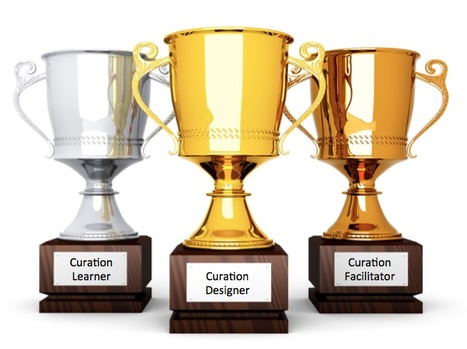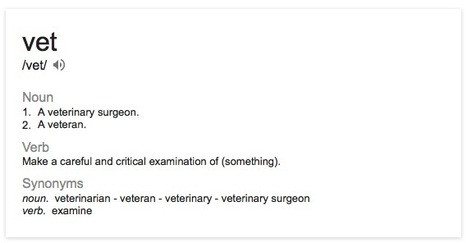Via Robin Good
Get Started for FREE
Sign up with Facebook Sign up with X
I don't have a Facebook or a X account
 Your new post is loading... Your new post is loading...
 Your new post is loading... Your new post is loading...
|

Robin Good's curator insight,
June 26, 2013 5:12 PM
Thanks to Alan Berkson intelligent use of hashtags as he retweeted his own post dating back to December 2012, and to Trendspottr, who made it easy for me to discover it, I have just run into one of the most inspirational short posts about curation that I have read in some time. The post is quite short, but it packs such an important truth, that I can't but bring it to you in its full integrity. "Being able to properly vet might be the most important skill of the 21st Century. Not curing sick animals. Not retiring from military service. I’m talking about “subjecting to thorough examination or evaluation.” We’ve been trained to rely on experts to do this for us.
This is a double-edged sword. As individuals we can develop and express thought leadership. However, also as individuals, we can no longer solely rely on third parties for pre-vetting our experts.
Content curation, if intended as the art of helping other people discover, learn and make sense of things they are interested into, is all about cultivating your own ability to become an expert by honing the skills of research, vetting and contextualization. This is it. Must read. Must share. 10/10 Original post by Alan Berkson: http://blog.intelligistgroup.com/that-third-kind-of-vet/ 
Gust MEES's curator insight,
June 26, 2013 5:19 PM
What should I say more? It's exactly that!
Learn more:
- http://www.scoop.it/t/21st-century-learning-and-teaching/?tag=Curation
- http://www.scoop.it/t/21st-century-learning-and-teaching/?q=PLN
|












Explanation of levels of content curation - sets aspirational goal. Relevance to students as a pathway for their development. See Robin Good's great summary.
Robin Good opinion:
Kirsten Wilson analyzes three different levels of content curation presently in use and describes accurately the differences between these.
"In regards to levels of curation it is much like Blooms. There is knowledge level curation- it is done for remembering and understanding (the “Learner Level”).
Another level is applying and analyzing- it is curated for use or been used and is a proven tool for using whether it be your tool or a tool you have discovered from your global connections via Social Media, blogs or simple internet searches (the “Facilitator Level”).
Finally, there are curations that go to the level of evaluation and creation… these are the curations that become invaluable tools to others. It takes the most work, but the result is most thorough and the resource it provides to others can be invaluable (the “Designer Level”)."
He concludes by reminding all would-be curators the importance of attribution and the amount of effort that the "designer level" of curation requires: "In this world of immediate access and available content make every effort to honor the source of your curation, inspiration and/or springboard for design.
Those that do curate at a “Designer” level and in many cases are the first in their field of expertise to find a new “method” put hours into the development and design."
Rightful. Instructional. 7/10
Full original article: http://teachkiwi.wordpress.com/2013/08/31/content-collaboration-and-curation-part-2/ ;
(Image credit: Three trophies by Shutterstock)
Robin Good把内容策展分为三个层次:策展的学习者,策展的设计者,策展的促进者。